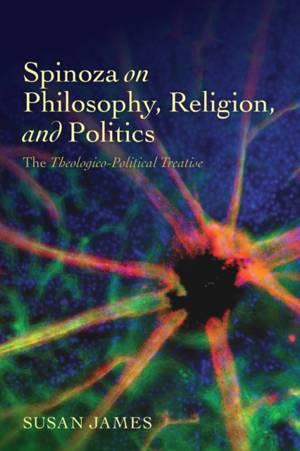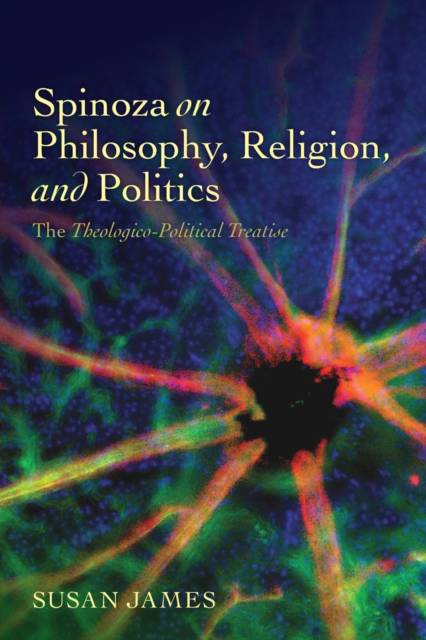
- Afhalen na 1 uur in een winkel met voorraad
- Gratis thuislevering in België vanaf € 30
- Ruim aanbod met 7 miljoen producten
- Afhalen na 1 uur in een winkel met voorraad
- Gratis thuislevering in België vanaf € 30
- Ruim aanbod met 7 miljoen producten
Zoeken
Spinoza on Philosophy, Religion, and Politics
The Theologico-Political Treatise
Susan James
Paperback | Engels
€ 85,45
+ 170 punten
Uitvoering
Omschrijving
Spinoza's Theologico-Political Treatise is simultaneously a work of philosophy and a piece of practical politics. It defends religious pluralism, a republican form of political organisation, and the freedom to philosophise, with a determination that is extremely rare in seventeenth-century thought. But it is also a fierce and polemical intervention in a series of Dutch disputes over issues about which Spinoza and his opponents cared very deeply.
Susan James makes the arguments of the Treatise accessible, and their motivations plain, by setting them in their historical and philosophical context. She identifies the interlocking theological, hermeneutic, historical, philosophical, and political positions to which Spinoza was responding, shows who he aimed to discredit, and reveals what he intended to achieve. The immediate goal of the Treatise is, she establishes, a local one. Spinoza is trying to persuade his fellow citizens that it is vital to uphold and foster conditions in which they can cultivate their capacity to live rationally, free from the political manifestations and corrosive psychological effects of superstitious fear. At the same time, however, his radical argument is designed for a broader audience. Appealing to the universal philosophical principles that he develops in greater detail in his Ethics, and drawing on the resources of imagination to make them forceful and compelling, Spinoza speaks to the inhabitants of all societies, including our own. Only in certain political circumstances is it possible to philosophise, and learn to live wisely and well.
Susan James makes the arguments of the Treatise accessible, and their motivations plain, by setting them in their historical and philosophical context. She identifies the interlocking theological, hermeneutic, historical, philosophical, and political positions to which Spinoza was responding, shows who he aimed to discredit, and reveals what he intended to achieve. The immediate goal of the Treatise is, she establishes, a local one. Spinoza is trying to persuade his fellow citizens that it is vital to uphold and foster conditions in which they can cultivate their capacity to live rationally, free from the political manifestations and corrosive psychological effects of superstitious fear. At the same time, however, his radical argument is designed for a broader audience. Appealing to the universal philosophical principles that he develops in greater detail in his Ethics, and drawing on the resources of imagination to make them forceful and compelling, Spinoza speaks to the inhabitants of all societies, including our own. Only in certain political circumstances is it possible to philosophise, and learn to live wisely and well.
Specificaties
Betrokkenen
- Auteur(s):
- Uitgeverij:
Inhoud
- Aantal bladzijden:
- 360
- Taal:
- Engels
Eigenschappen
- Productcode (EAN):
- 9780198701217
- Verschijningsdatum:
- 15/03/2014
- Uitvoering:
- Paperback
- Formaat:
- Trade paperback (VS)
- Afmetingen:
- 155 mm x 231 mm
- Gewicht:
- 521 g

Alleen bij Standaard Boekhandel
+ 170 punten op je klantenkaart van Standaard Boekhandel
Beoordelingen
We publiceren alleen reviews die voldoen aan de voorwaarden voor reviews. Bekijk onze voorwaarden voor reviews.











